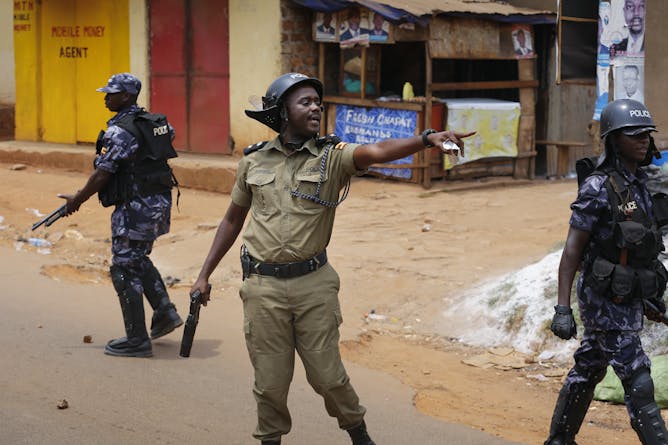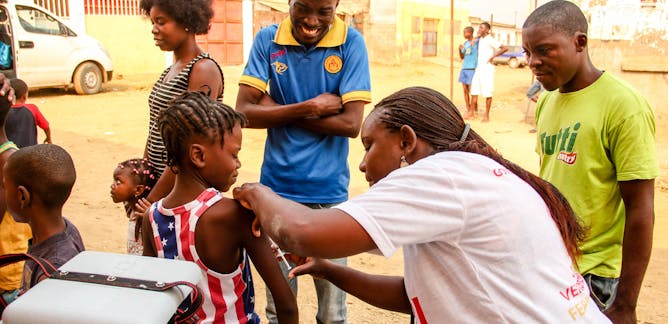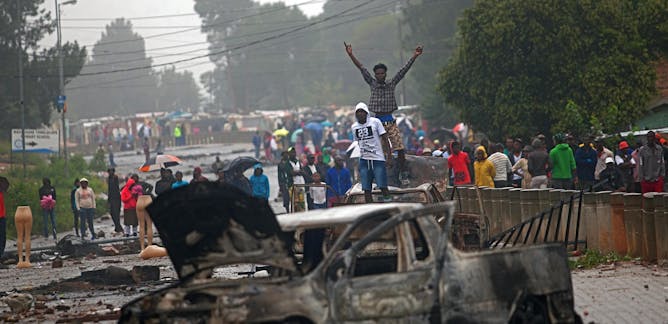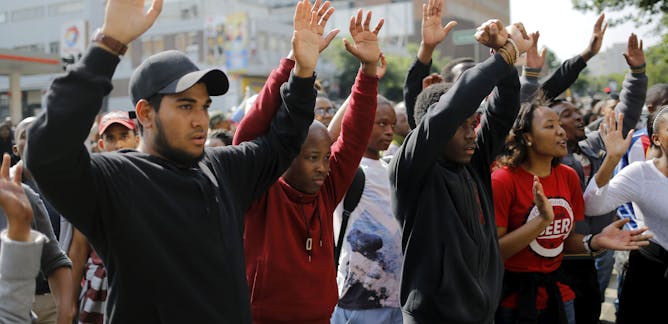|
There are laws in Uganda that restrict the amount of force police can use on civilians. But there is also a multiplicity of legislation that empowers the police and other security agencies to carry out arrests as well as to control and disperse crowds. These laws place no limits on the use of force or firearms. Sylvie Namwase writes that despite a key constitutional ruling that limited the police’s power to use unlimited force when
dispersing crowds, loopholes still persist within Uganda’s legal framework.
A new antiretroviral drug has been given the thumbs up by the World Health Organisation and is now being introduced into many HIV programmes across the world. One of the factors that influenced the WHO’s decision were the preliminary results from studies that include an ongoing trial in South Africa. Michelle Moorhouse and Willem Daniel Francois Venter explain what the South African trial has found.
|

Uganda’s security officials have been known to use too much force when dealing with crowds.
Dai Kurokawa/EPA
Sylvie Namwase, University of Copenhagen
Uganda's police have powers to use excessive force on citizens.
|

The drug is set to improve HIV treatment.
shutterstock
Michelle Moorhouse, University of the Witwatersrand; Willem Daniel Francois Venter, University of the Witwatersrand
The study confirms that dolutegravir is an effective and well-tolerated ARV.
|
Science + Technology
|

Himla Soodyall, Academy of Science of South Africa
Science academies have a crucial role to play in developing ways for scientists to engage more effectively.
| |

David Sims, University of Southampton
Even the remote open ocean offers no escape from industrial fishing for sharks.
|
|
|
Politics + Society
|

David Dickinson, University of the Witwatersrand
A clandestine system of transfer payment, with roots in apartheid-era boycotts, has developed into routine behaviour on which many family budgets now depend.
| |

Peter Vale, University of Pretoria; Harry Boyte, Augsburg University
South Africa's universities are detached from society because of a waning public and civic sector that once fueled the anti-apartheid struggle. Here's what can be done.
|
|
|
From our international editions
|

Simon Usherwood, University of Surrey
Britain's new prime minister has spoken ... now he needs to act.
| |

Steve Taylor, Leeds Beckett University
Self sacrifice isn't all about selfish genes.
|

Michael J. I. Brown, Monash University
A 100-metre-wide asteroid passed just 70,000km from Earth on Thursday, and we had little warning it was about to happen. What threat is posed by asteroids and how do we find them?
| |

Viktor Mayer-Schönberger, University of Oxford
Forgetting is beneficial for the human brain. But the internet has made it harder to let go of painful or problematic memories.
|
|
|